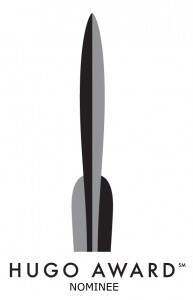My votes for the Hugo Short Story Award

This year’s Hugo Awards will be presented at the Seattle Worldcon on Saturday evening, August 16. The short story category, as usual, has some overlap with this year’s Nebula Awards, and if you read no other short fiction, I recommend reading the nominated stories. You’ll come away with an excellent panorama of where the field is today.
Here are my votes, and I based them on the storytelling risks and successes. You may very reasonably have different criteria and choices.
6. “Marginalia” by Mary Robinette Kowal (Uncanny Magazine, Issue 56) — The story is based on drawings of knights fighting snails in medieval manuscript margins, which is a charming inspiration: What if knights really fought snails? A struggling family joins with their lord in a fight to the death. The story wraps up too neatly for me, so it comes in sixth, but other Hugo voters loved it.
5. “Five Views of the Planet Tartarus” by Rachael K. Jones (Lightspeed Magazine, January 2024: Issue 164) — This is flash fiction about the horrors faced by those found guilty of treason, with an ennobling, subversive twist. I especially like that very short fiction has found its way onto the ballot.
4. “Stitched to Skin Like Family Is” by Nghi Vo (Uncanny Magazine, Issue 57) — The magic contained in clothing leads a sister to her brother, then gives her power. Carefully and competently told, and Nghi Vo’s love of old (vintage?) clothes and their histories shines through.
3. “Three Faces of a Beheading” by Arkady Martine (Uncanny Magazine, Issue 58) — A convoluted story about complicity in a genocide told through multiple points of view in a multi-player RPG and mass storytelling. I admire the experimental style, even if it was confusing.
2. “We Will Teach You How to Read | We Will Teach You How to Read” by Caroline M. Yoachim (Lightspeed Magazine, May 2024: Issue 168) — A message is sent apparently to humans from a very different, brief-lived species: a simple message that holds entire lives. This is another experimental format, and it left me with a lot to think about.
1. “Why Don’t We Just Kill the Kid in the Omelas Hole” by Isabel J. Kim (Clarkesworld, February 2024) — I nominated this for the strength of the storytelling voice, and after reading all the finalists I still like it best: “… tell me there is a better solution than putting one single kid in the hole, and letting that one single kid have a miserable life, in return for the good lives of all of our children?” The story has already won the Nebula, Locus, and BSFA awards, and I think it’s a strong contender for the Hugo. It’s an update on the classic Ursula K. Le Guin story, which also won awards when it was published in 1974. A half-century later, even though our exact circumstances have changed, we still have to make tough moral choices.



